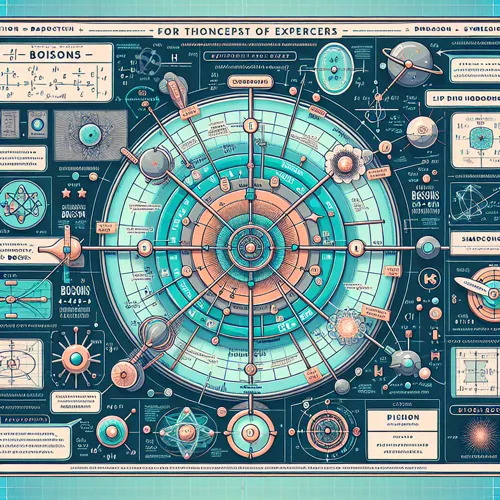A Brief Look at Bosons in Physics
The concept of bosons arises from particle physics and plays a vital role in our understanding of the universe. Discover how these fundamental particles, governed by quantum mechanics, impact everything we know about forces and matter interactions.
Defining Bosons: What Are They?
Bosons are a category of elementary particles that behave fundamentally differently from their counterparts called fermions. Fermions include electrons and protons, and they exhibit properties that do not allow them to occupy the same quantum state simultaneously. Contrarily, bosons can share the same state, resulting in unique phenomena like laser light and superfluidity.
Boson Classification: Abelian and Non-Abelian
Bosons are divided into two types depending on their symmetries - Abelian and non-identical bosons. The key difference lies in their transformation properties when interacting with forces such as electromagnetism or gravity. Understanding these properties enables scientists to develop a better understanding of quantum field theories and gauge symmetry principles.
The Importance of Boson Fields: Higgs Boson and Beyond
The Higgs boson is an essential bosonic particle in the standard model of physics. Its discovery confirmed the existence of the Higgs mechanism, which gives particles mass through their interactions with a “Higgs field.” Without this field, the fundamental forces that bind our universe would not exist as we know them today.
Quantum Statistics and Boson Distribution
Bosons adhere to Bose-Einstein statistics, predicting phenomena like superconductivity, Bose-Einstein condensation, and laser action. In contrast, fermions follow Fermi-Dirac statistics, governing behavior such as electron orbitals in atoms and the Pauli exclusion principle. Both of these statistical models offer insights into the mysterious world of quantum mechanics.
The Boson Enigma: Exploring Beyond the Standard Model
The standard model does an excellent job explaining particles at smaller scales; however, it leaves much to be discovered in the realm of larger particles, such as cosmic strings and dark matter candidates. One such candidate, Weakly Interacting Massive Particles (WIMPs), may provide a potential link between known bosons and elusive dark matter.
The concept of bosons is fundamental to understanding our universe’s underlying structure. By delving deeper into the characteristics and phenomena that govern these fascinating particles, researchers hope to unlock even more secrets in quantum mechanics, cosmology, and beyond
